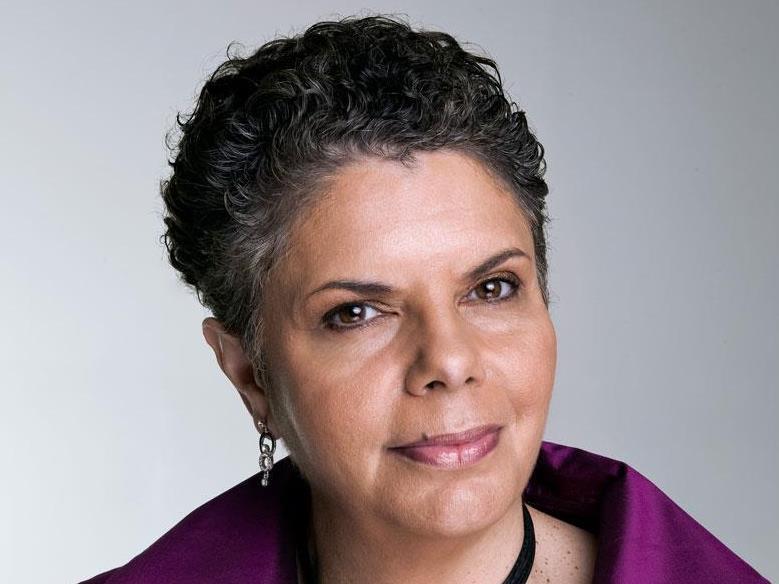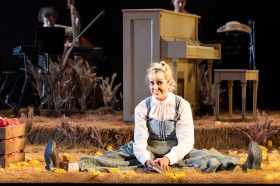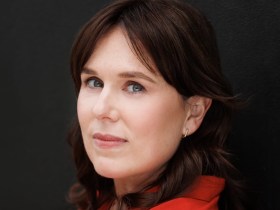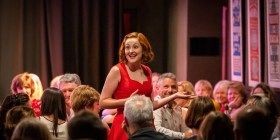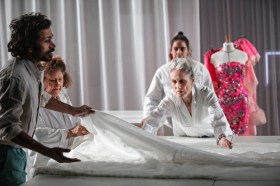There is a particular poignancy to Deborah Cheetham’s rendition of Dvorak’s ‘Songs My Mother Taught Me’, as she has already told the audience it was her adoptive mother who taught her songs – Cheetham was one of the Stolen Generation. Much of the singer’s story was revealed some years ago in her play White Baptist Abba Fan – but as a lead act in the Melbourne Indigenous Arts Festival, this performance reveals an artistry which even devoted Cheetham fans may not have suspected.
Deborah Cheetham is an opera singer. Inspired as a child by the great Joan Sutherland among others, Cheetham trained at the Sydney Conservatorium of Music and made her debut at the Sydney Opera House in 1997. Through her company, Short Black Productions, Cheetham has explored issues of aboriginality, gender and sexuality – and while Til the Black Lady Sings appears to be dominated by a traditional operatic repertoire, most songs also illuminate Cheetham’s own story.
Many concerts at the Melbourne Recital Centre begin with a ‘Welcome to Country’, but this has particular significance. There is an extended welcome to many groups, including Cheetham’s own Yorta Yorta people for whom she performs the folksong ‘Way Waly’ (The water is wide) and then ‘Biami Creation Story’ from her opera Pecan Summer. Guest artist Tiriki Onus lends his rich bass baritone to this creation story of the Yorta Yorta people and Dhunghala (the Murray River).
As for Cheetham herself, she displays a voice equally comfortable with light-hearted music like Lehar’s ‘Long Live Forever’, and powerful works by Puccini, Richard Strauss and Catalani. Many, like the Dvorak, reference mothers and children, and convey a deep sadness.
Vaughan Williams’ ‘Silent Noon’, chosen for its ‘story-telling’, is the perfect vehicle for Cheetham’s powerful resonant voice, the song enhanced by shadings in volume and articulation. In this, as throughout, Cheetham had sympathetic accompaniment from pianist Toni Lalich (‘my partner in life and music’, the singer announces, to enthusiastic applause).
George Gershwin’s ‘Porgy and Bess’ brought ‘black and white audiences together in the 1930s’, Cheetham tells the audience – and the message for her own mixed audience is clear. ‘Summertime’ is the obvious choice to end the program, for its subject matter, its languorous mood tinged with sadness – and its suitability for Cheetham’s lovely voice. The opening high notes are achieved with ease, and the audience seems entranced until the last falling phrase – and beyond.
The range and depth of Cheetham’s soprano voice is impressive – but this is one concert that seemed to hit the heights throughout!
Rating: 4 stars out of 5Til the Black Lady Sings
Performer: Deborah Cheetham
Melbourne Recital Centre
Melbourne Indigenous Arts Festival
www.melbournerecital.com.au
5 February

